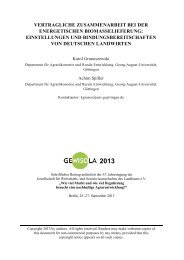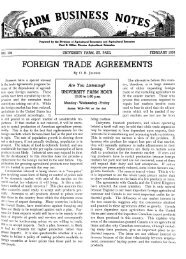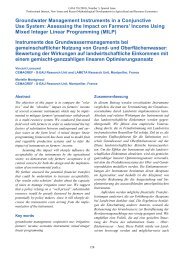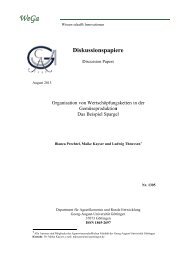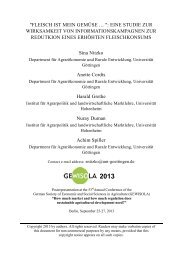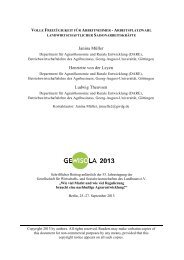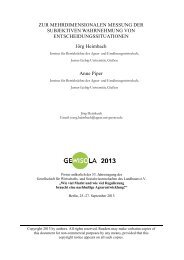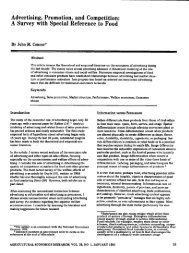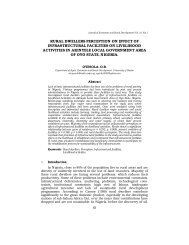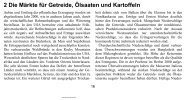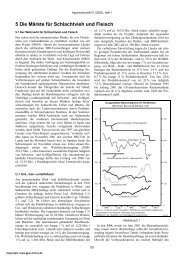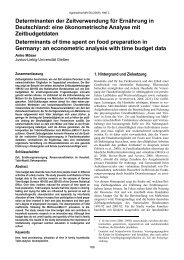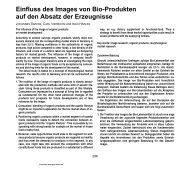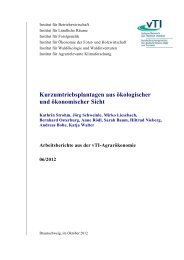District Institutes of Education and Training - Teacher Education
District Institutes of Education and Training - Teacher Education
District Institutes of Education and Training - Teacher Education
Create successful ePaper yourself
Turn your PDF publications into a flip-book with our unique Google optimized e-Paper software.
<strong>District</strong> <strong>Institutes</strong> <strong>of</strong> <strong>Education</strong> <strong>and</strong> <strong>Training</strong>: A Comparative Study in Three Indian States<br />
approach more in line with their intentions <strong>of</strong> trying to underst<strong>and</strong> teachers’<br />
viewpoints was to generate categories for analysis from the responses themselves –<br />
the more ‘grounded’ approach <strong>of</strong> qualitative research. This second type <strong>of</strong> analysis<br />
was carried out with the project team. As the following excerpt shows, Dhar DIET<br />
staff immediately saw that this approach was more meaningful:<br />
J Here they have to write. They have written for the first time. Till now<br />
what ever feedback has been taken - this is the first time they have written.<br />
Till now the work was done by tick marking. We also calculated this many<br />
agreed <strong>and</strong> this many didn’t <strong>and</strong> wrote. No meaning came out <strong>of</strong> it.<br />
AC Do you feel this will be useful for your <strong>District</strong>?<br />
V We do feel so.<br />
J At least we will be face to face with bitter truth. More than that what can<br />
happen?<br />
AC Don’t take it as a bitter truth. What we have to think is OK, we have to<br />
start from here. My teachers are at this point now what can I do?<br />
Y To minimise their lacking.<br />
This citation illustrates that taking action on these findings would however be shaped<br />
by the DIET’s agency to be proactive <strong>and</strong> its perceptions <strong>of</strong> teachers - two areas<br />
where the action research process was attempting to promote more positive stances.<br />
Outcomes – the findings<br />
<strong>Teacher</strong>s responded very well to this action research project, <strong>and</strong> many <strong>of</strong> them<br />
took the time to write detailed responses to the questions. One teacher later<br />
commented:<br />
We have filled in so many questionnaires by those university pr<strong>of</strong>essors. They<br />
get someone to come <strong>and</strong> he just ticks the boxes. It never makes any difference<br />
to us. But the way you have been asking us questions, asking us to write our<br />
opinions…you have made us think for the first time.<br />
Responses to the first question were full: teachers detailed schemes or their<br />
underlying concepts, <strong>and</strong> sometimes raised issues or noted points that could alert<br />
the DIET to some <strong>of</strong> their difficulties. The second question revealed that teachers<br />
found it difficult to link the changes with each other:<br />
Shiksha Samakaya: In this children are given through teaching the medium <strong>of</strong><br />
play way method. This is a good scheme. Before, children used to fear school.<br />
Now that fear is gone <strong>and</strong> they have started to come to school happily. By this<br />
improvement in primary education has happened.<br />
Midday Meal Scheme: This is a good scheme but nobody has got<br />
special/significant benefit. In this children also do not take interest <strong>and</strong> nor does<br />
the teacher because most <strong>of</strong> the teacher’s time goes in making information.<br />
140 DFID



